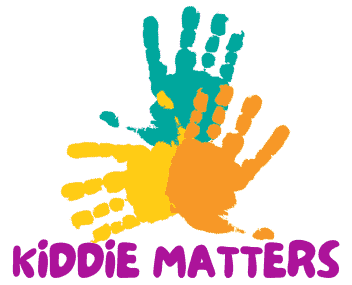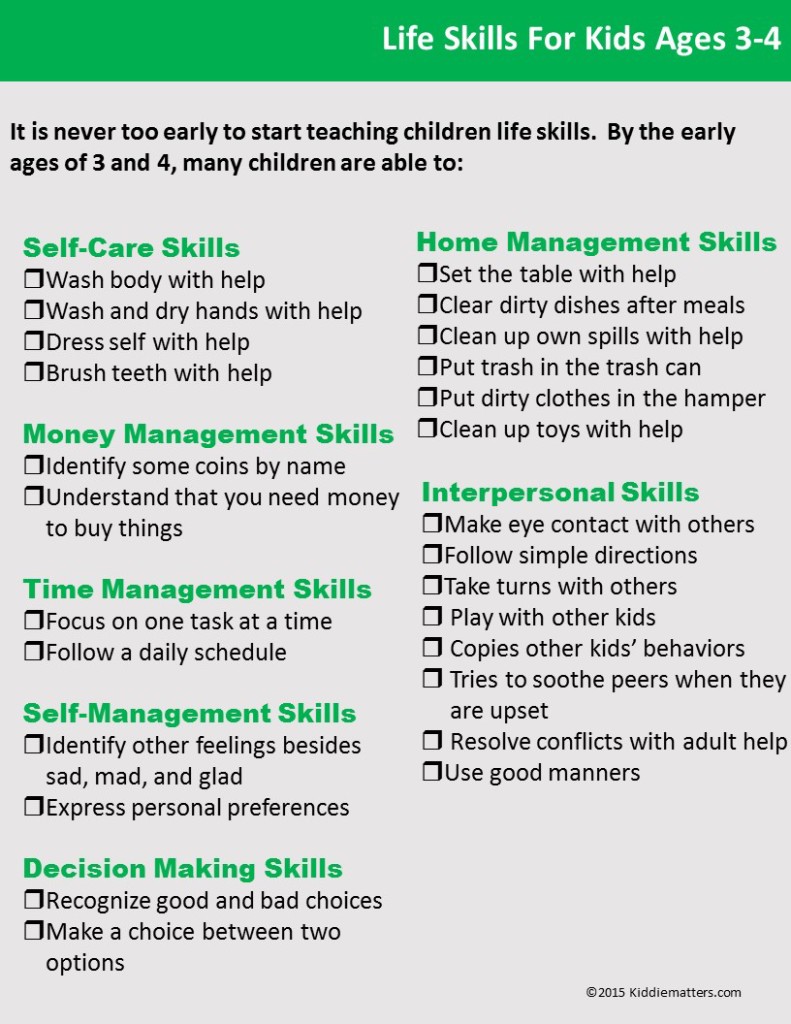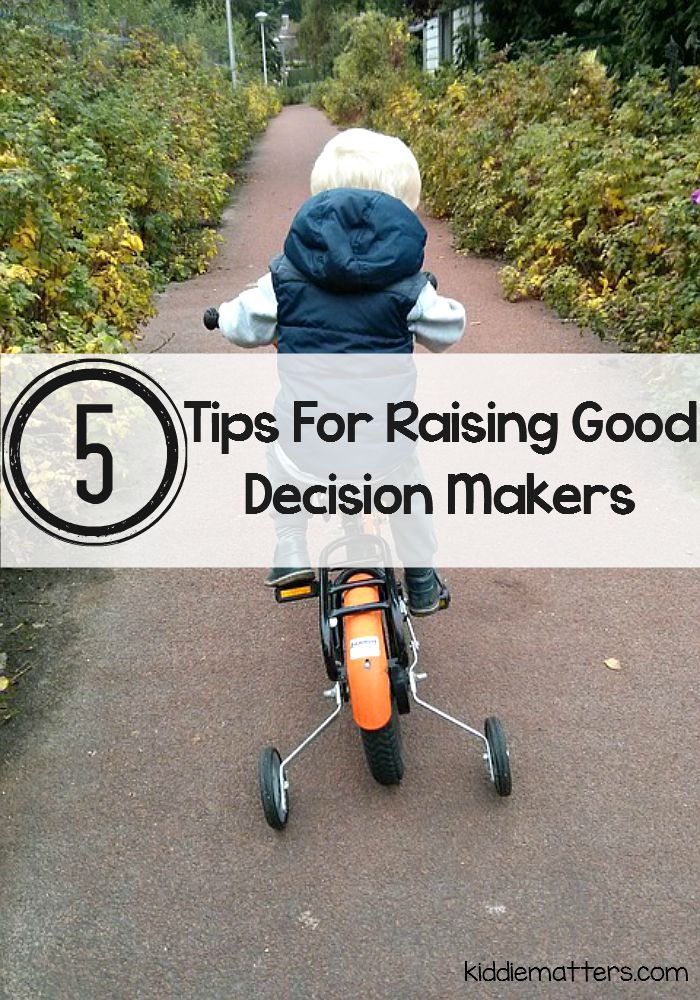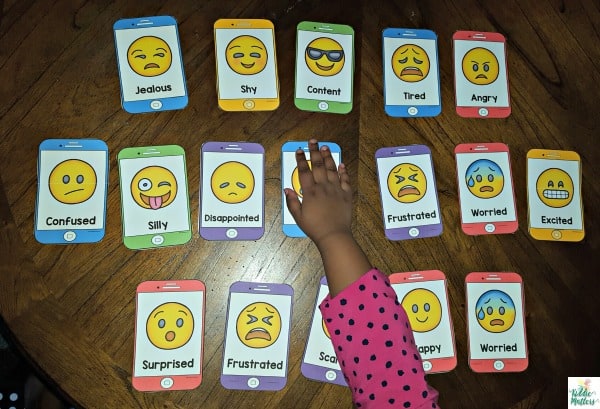Life Skills Checklists For Kids And Teens
Is your child learning the life skills they need to become independent adults? Once you complete these life skills checklists you might be surprised!!
We’ve all heard stories about kids going off to college never once doing a load of laundry or preparing a meal for themselves.
I remember my freshman year of college living off take out and Ramen Noodles because it was the only thing I knew how to cook. It didn’t take long for me to surpass the dreaded Freshman 15 as I skyrocketed to my highest weight ever.
I wish my waistline was the only thing that grew, but my credit card and student loan debt were also through the roof. I didn’t know much about managing money outside of spending it.
Words like interest rate, taxes, and late fees didn’t mean much to me back then. These days when I pay my student loan bills I keep telling myself, “man, I wish I knew then what I know now.”
I don’t want my children to have the same regrets when they get older and that is why teaching them essential life skills is so important to me and my family. The truth of the matter is, we aren’t raising children, we’re raising adults.
Our cute little toddler won’t stay a toddler forever. One day they will grow up and need to know how to schedule their own doctors appointment, how to prepare a meal for themselves, how to change a tire and so much more.
Sure some kids will pick these skills up on their own. But wouldn’t you rather give them a leg up by preparing them with some basic skills? Of course we can’t prepare them for EVERYTHING. However, there are a few basic skills we can teach our children to help them on this journey called life.
One of the greatest gifts we can give our children is to prepare them for the future by teaching them essential life skills. UNICEF defines life skills as “psycho-social abilities for adaptive and positive behavior that enable individuals to deal effectively with the demands and challenges of everyday life.” So basically life skills help you to adapt and cope with the daily challenges life throws your way.
There are a wide range of life skills that you can teach your child. Listed below are the seven life skills I believe are the most beneficial for children to learn in order to be successful in school and life:
- Self-Care Skills
- Self-Management Skills
- Interpersonal Skills
- Decision Making Skills
- Time Management Skills
- Money Management Skills
- Home Management Skills
Self-Care Skills
Self-care skills are everyday tasks done to maintain proper hygiene and health. This includes getting dressed, brushing your teeth, taking showers, etc. These skills are also referred to as activities of daily living (ADL’s). When children are young, the caregivers in their lives typically help them with activities of daily living. However, as children get older, the responsibility falls on them.
It’s never too early to start teaching these skills. For example, when parents are giving young children baths, it’s helpful to talk through the process with them. Let them know how much soap to put in the bath tub or on their wash cloth/loofah ball.
Inform them of the correct way to clip their nails, of how long to brush their teeth, and the correct technique to use. As adults, we have been doing these tasks for so long that they are second nature to us. However, it’s important to remember that we once had to learn these skills from somewhere. We can’t assume that every child will pick these skills up and perform them correctly.
Self-Management Skills
Self-management is defined as the ability to successfully control one’s emotions, thoughts, and behaviors. It is a key skill to develop in children. Self-management skills allows them to effectively manage stress, show self- discipline, manage their impulses, and take initiative.
Effective self-management skills help children to set goals and come up with a plan of action for achieving those goals. They also ensure that children learn to behave in responsible ways even when they would rather shirk off their responsibilities.
Many kids, not all, typically have an adult in their lives reminding them to complete important tasks. Most of us can relate to telling our kids (constantly) to do their homework, take a shower, study for a test, make their beds, etc.
This works when children are young. However, one day our little ones become big ones and leave the nest. We won’t be able to remind them to prepare for a meeting at work, or to follow up on a task their boss asked them to complete.
They will be the ones in charge of getting things done. We do our kids a disservice when we don’t give them a chance to develop good self-management skills.
When kids are old enough, allow them to establish goals for themselves and come up with an action plan. Let them be in charge of deciding when to complete homework assignments.
When they are upset, discuss the problem with them, but allow them to choose how to cope. You can certainly guide them. However, you want children to start taking responsibility for themselves.
Related Article: Helping Children Set and Achieve Realistic Goals
Interpersonal Skills
Children begin developing interpersonal or relational skills as early on as infancy. For example, babies will make eye contact and smile with caregivers and family members.
As children develop, so do their interpersonal and social skills. They learn to communicate using language. This opens up a whole new world of engaging with others.
Having good interpersonal skills allows children to make and keep friends, play with other kids, start a conversation, express their needs and wants, and resolve conflicts.
When children grow up, appropriate interpersonal skills comes in handy when they start a job or begin dating. They are less likely to feel awkward when interacting with others.
Good interpersonal skills also allows children to have meaningful relationships with other people and greater self-confidence.
It’s important that we provide children with opportunities to engage with other kids. Bringing them to the park or scheduling playdates are great ways to get younger kids together.
Encourage older kids to get off social media and their phones. Let them go to the park with their friends to hang out in person. It’s important that children learn to interact face to face.
Chatting online doesn’t yield the same benefits.
When children experience conflicts with peers, it’s important that parents don’t rush in to rescue them. While it is important for parents to listen to their children and intervene if the situation is physically or emotionally harmful, not every conflict requires parents to save the day.
Parents can process the situation with their children and help them come up with solutions.
Children who have siblings get a head start on conflict management. Siblings provide a built in opportunity for children to work on resolving conflicts. Next time your little one comes to you to tattle on their sibling, use it as an opportunity to teach them how to resolve their problems on their own.
Related Article: The Ultimate Guide to Social Skills Activities
Decision Making Skills
Children make a wide range of decisions on a daily basis. They choose how to behave in a given situation, what toys to play with, who to play with what books to read, and the list goes on.
As they get older, the decisions they make get more difficult. This is why it’s important to equip them with good decision making skills that will last them a lifetime.
When children learn to make good decisions they become more independent and responsible. They learn to trust in themselves and feel confident about their choices.
They still need adult guidance, however they learn to trust themselves and experience less self-doubt.
Children learn to make good decisions based on their experiences. Their decision making process is also strongly influenced by the expectations and values they learn from others around them.
Therefore, it’s important that we allow children an opportunity to make some decisions o their own. It shows them that you trust their judgement and believe they can make good choices.
Related Articles: Best Tips For Teaching Kids The Decision Making Process
Time Management
Time management is the process of planning and effectively allocating how much time you spend on specific activities to ensure that you are productive.
Many of us know first hand how important time management is to being productive. But let’s face it, it’s pretty easy to get distracted.
Whether it be a phone call from a friend, a show on TV. or an email notification…it happens to the best of us. One minute you’re on the internet doing research and the next thing you know, you find yourself mindlessly scrolling through your Facebook feed.
Kids these days have so many distractions to contend with. This makes it even more crucial that they learn how to manage their time well.
Parents need to make sure that they limit the time kids get to use their electronic gadgets and the time they spend on social media. Give kids a timer instead of nagging them to get off their gadgets. This allows them to be responsible for how they spend their time.
As children mature, allow them to have more responsibility in getting homework and projects done on time. This might mean allowing them to face the natural consequences of not completing an assignment when it’s due.
Even though this might mean getting a bad grade, you can use this as a teachable moment to help them learn to manage their time better.
Money Management
It’s never too early to teach kids how to manage money. We were lucky enough that our kids’ elementary school did a banking program. It was easy to get the kids to buy into saving their money because most of their friends were doing it. Also, on banking days, the kids got an inexpensive reward from the bank.
However, you don’t need a banking program to teach kids how to manage money. Parents can teach kids about money management by having them save up to buy a toy or something else they really want.
My boys always wanted action figures after watching superhero movies. Most of these toys are priced between $5 and $10. They earned money by doing chores or from gifts.
We used the Three Jar money management approach. The kids had one jar for saving, one jar for sharing, and a third jar for spending.
Some parents require their kids to put a certain percentage in each jar. We let our kids decide how much they wanted to put in each. Once they had enough in their spend jar they could buy their toy.
Let me tell you, when they have to spend their own money to buy what they want, they get real hesitant about whether or not they truly want the toy!
My husband works in finance so with our oldest, we started discussing stocks and investments with him at around age 10. He follows a few YouTube personalities and was aware that they made a profit from ads.
Of course he wanted to start his own channel too and make some money. This was the perfect window to start talking to him about being an entrepreneur and running a business.
Kids are pretty savvy. Don’t be afraid to talk to them about finances and managing money. Since the dawn of the lemonade stand, kids have been dreaming of being their own boss. Use that as a way to help them develop a realistic understanding about money and managing their finances.
Home Management Skills
There’s a lot that goes into managing a home. It doesn’t matter what path our kids take in life, they will still need to know the basics of managing a home. Teaching kids to cook is a must.
It doesn’t have to be a gourmet five course meal. It can be as simple as making a hard boiled egg or making toast. In the beginning, it’s all about getting them comfortable with appliances like the stove, toaster oven, and microwave.
The first thing I taught my son to make was a fried egg. I explained the steps as I did it and then the next time he fried the egg while I supervised.
As he got more comfortable we moved on to cooking other foods like bacon and hot dogs. (Those were top on his list to learn to cook).
My daughter is the baby of the family. However, she still helps out in the kitchen by washing vegetables, rolling dough, and adding seasonings to meat.
All the kids get to help in planning the menu for the week. When we go to the grocery store, they also get to check the nutrition labels on what we put in the cart and the cost of each item.
My kids have a fascination with the washing machine and dryer so teaching them how to do laundry was a breeze. First, we worked on separating whites and colors.
Then we explained to them how each machine worked. Again, the key for us is always getting them comfortable with the appliance.
They need to respect the appliance and understand the dangers of using them incorrectly before they get to operate them!
Kids can help with folding laundry, putting clothes on hangers, and putting them away in drawers. My son found a video on YouTube of how to use a cardboard box to fold t shirts and he taught my five year old to fold. Being the little entrepreneur that she is, she charged her brothers 5o cents to fold their shirts!
Kids are also able to learn how to operate a vacuum, sweep, and mop. We have pets and allergies so teaching them how to dust was must.
Try to explain to children why keeping a clean house is important. Sometimes they think grown ups clean because they are boring and have nothing better to do. (My middle son thinks I clean because I want to ruin his life).
Explain to them the health benefits of not letting bacteria build up, or how dust build up can trigger allergies. I find that when kids understand that there’s a reason why we do things, they are more willing to learn and do tasks they might not enjoy.
I get asked a lot about what to expect from kids at a certain age and what age is appropriate for teaching them certain skills.
I’ve put together these Life Skills Checklists for Children and Teens. These checklists are strictly for educational purposes.
Keep in mind that each child develops differently and at their own speed. Use your discretion when using these checklists. Below is a sample of one of the checklists. I hope you find them useful!
This and the remaining checklists are free to download when you sign up for my monthly newsletter, The Social and Emotional Toolbox. In this newsletter I share with you strategies, printables, and activities for developing children’s emotional intelligence through social emotional learning resources.
In addition to receiving these free life skills checklists for kids and teens, you will also gain VIP access to our growing library of social emotional learning resources.
What are some life skills you teach your children?








I am snagging this for my kids! I have 40 twin 13 year olds, a 10 year old, and a 5 year old. This list is perfect for all of them.
I wish my parents had these checklists while I was growing up! Of course I could dress myself and keep my bedroom clean and take care of personal hygiene and all that, but I was never taught how to manage money or do the dishes (along with many other chores) or do the laundry or any of that. It was a rough first three years for me after graduating high school and moving out because I literally had to teach myself things that my friends had known how to do for years at that point. I kid you not, I was 19 when I learned how to use a washer and dryer. My friend taught me. So sad. But now I’m now 23, married, and an amazing housewife. I have no idea where that came from haha All parents should have checklists like these!
Keating I completely agree that parents should have these checklists or any other life skills checklist for that matter. I was a financial mess in my 20’s because my parents assumed I just knew how to manage my finances! Hopefully these checklists serve as a reminder to parents to make sure they are preparing their kids for the real world.
What valuable information for parents and kids to learn! I love how you broke it down into age groups and that you have an array of topics on each group, since there is never a one size fits all answer to ANYTHING when it comes to parenting.
Love this! It’s so easy to raise entitled kids in our current culture- love the reminders of what they can do for themselves. My 2 year old loves to put her laundry in the basket and help me throw trash away (and non-trash too ??)
Thanks for the heads up!
I’m 38 and still have a hard time with money and time management. I definitely want my kids to do better. Thanks for sharing this! This is very helpful
Well I glad I’m not alone:)
Great. Skill development is so important for child development. Thank you for sharing.
Hi! This is great. Please consider changing reference to “interest in opposite sex” to be more LGBTIQ+ inclusive. Eg reference to sexuality, sex.
Thanks!
I love this idea, I am trying to access the life skills checklists and have put my email in a few times and still cannot get access or find the checklists. I work with young adults so the checklist you have for the oldest group would be helpful!
Thank you!
Hi Brittany-I apologize for the inconvenience. You should be able to download the checklists now. I appreciate your patience.
Donna once you have the password to the free resources (this is case sensitive and must be entered exactly as written) you should be able to access the worksheets.
Hi. This is such a great idea. I love to have a checklist for my 3 kids and work on the ADL skills.
Thank you.
Please could I get a copy of the lifeskills check lists? I have been trying to download them but on entering my email and name it just freezes.
Thanks
Hi Vicky,
I hope you’re doing well. I apologize for the inconvenience. Please email me at kiddiematters@gmail.com and I’ll connect you with the checklists.